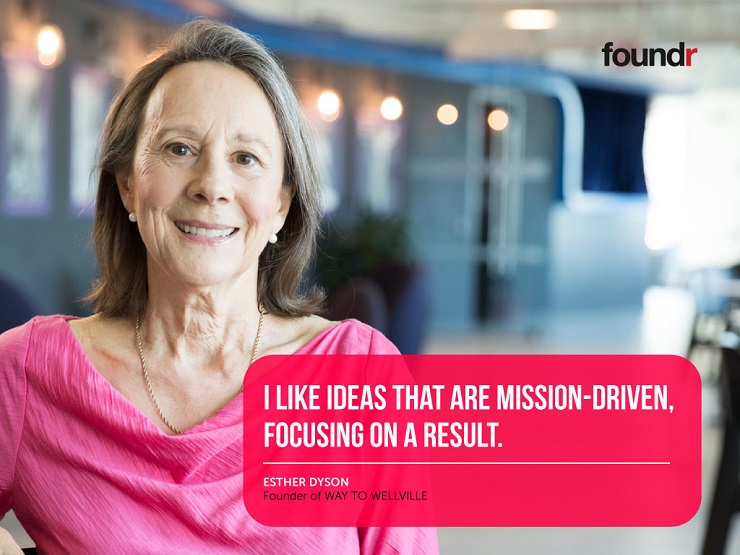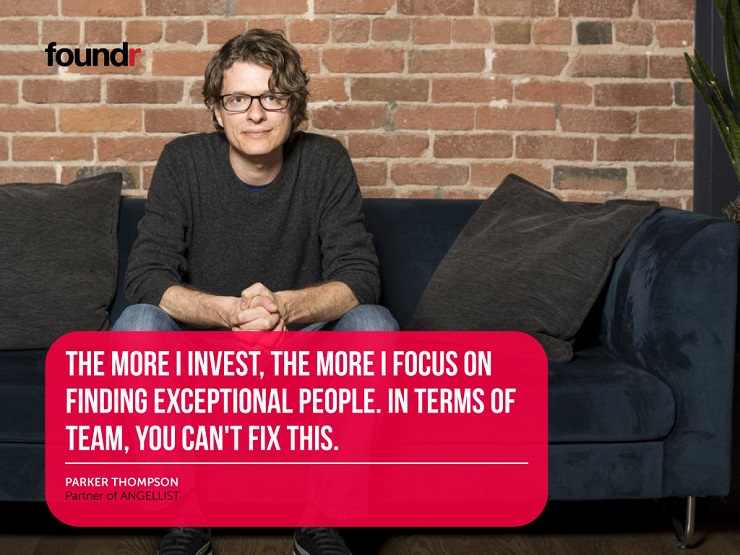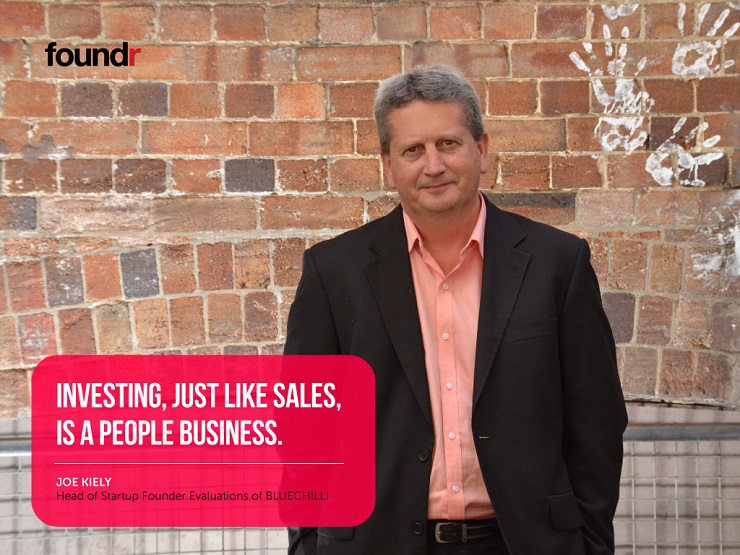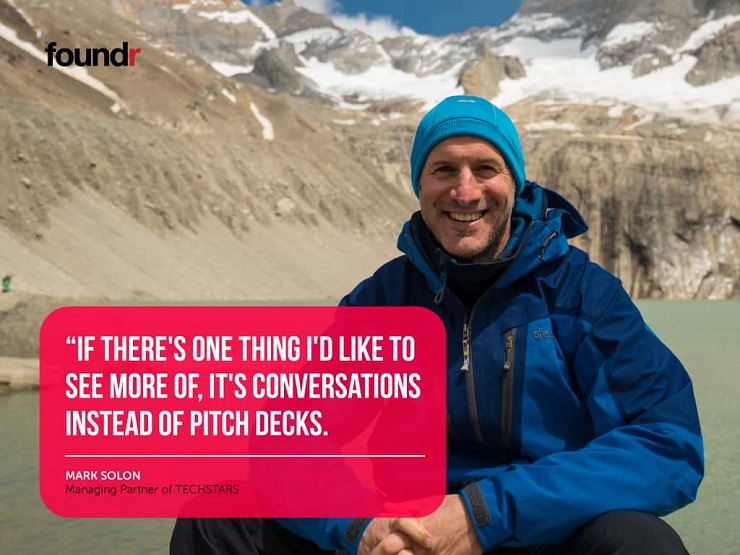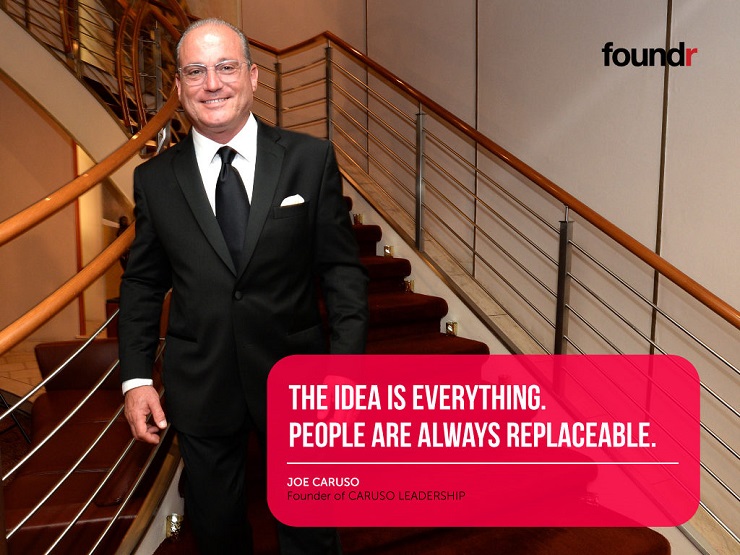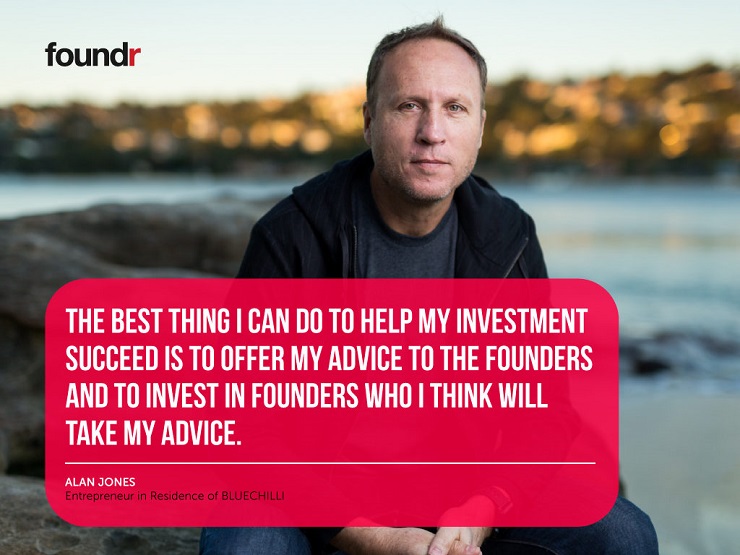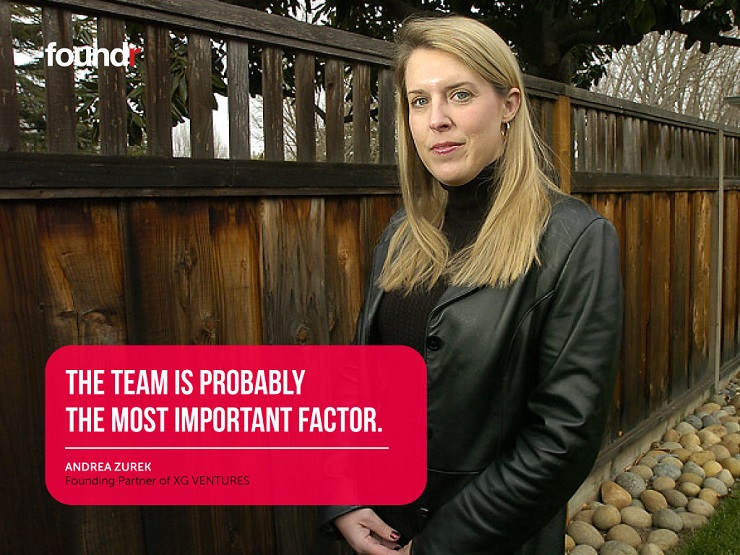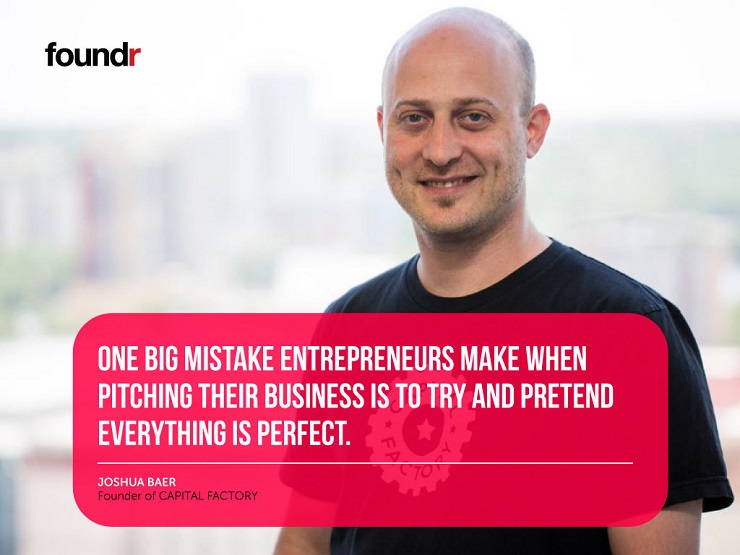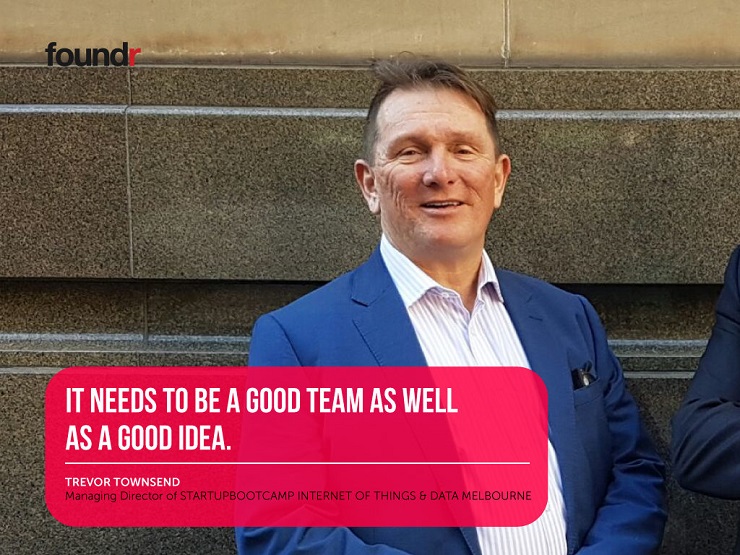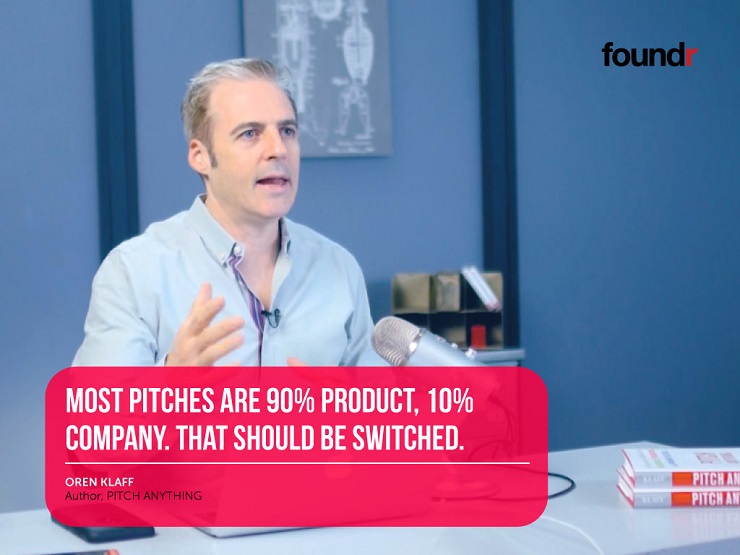For many entrepreneurs, there will come a time when they must stand up in a boardroom filled with investors, and convince them all that their startup pitch is so clever, their plan so tightly crafted, that it is worthy of a stack of cold, hard cash.
What sets the winners apart from the losers? For that matter, what makes a good startup pitch? These are good questions. So we asked eleven of the best investors and VCs out there for their answers.
Before we get to their responses, though, it’s important to point out why this topic is so important. For one, outside funding is a necessity for many startups, in order to grow and scale, or in some cases to even get off the ground. Some things you just can’t do with your own savings or meager early revenues.
But even for all of you who plan to bootstrap all the way to success, you still need to prove your startup idea and your business’s worth to an outside audience, even if that’s just your customers. Investors have made it their livelihoods to spot brilliance and poke holes in seemingly airtight plans. Sometimes, your idea isn’t even as important as you might think.
So we went right to the source to help the Foundr community understand what makes for an early-stage startup that will blossom into a wealth of customers, revenue, and yes, even funding.
We reached out to some of the top VCs and angel investors in the world and asked them three simple questions:
- How do you evaluate a startup idea?
- What startup pitches/idead would you like to see more of?
- What’s the biggest mistake people make when it comes to pitching you their startup ideas?
You’ve gotta hear what they had to say—I think some of their responses will surprise you.
FREE MASTERCLASS: How To Start a Tech Startup And Get Your First Customer In 60 Days
David Cohen, Founder and co-CEO, Techstars
More than the startup idea I’ll primarily look at the team. I want to know their “why”.
I don’t ignore the idea, it’s important too. But a great team, with real energy and purpose, and a great idea is the combination I’m after. I’ll also sometimes just fund a great team before they figure out their specific idea.
A great team, with real energy and purpose, and a great idea is the combination I’m after.
I want to see more startups solving big world problems.
Water, food, and other logistical issues like this can be solved. Healthcare, etc. Too many companies are doing minor incremental things these days. I love people that think bigger and want to make an impact.
Think bigger and make an impact.
I see way too many entrepreneurs with false confidence, with nothing to back it up. Or confidently held wrong information. Basically lots of bravado but no substance. That’s the combination I dislike seeing the most.
It’s important to have ego, and to have self-confidence when pitching. But you have to be able to put your money where your mouth is, before coming to me asking for money.
Esther Dyson, Founder, Way to Wellville
When it comes to how I judge the potential behind the startup ideas I get pitched:
First, I have to like the general idea and the space. Then, I need to believe that this is the team to make it work. I like ideas that are mission-driven, focusing on a result.
I like ideas that are mission-driven, focusing on a result.
If the team is focused on the result, they will pivot as needed to achieve it. But if they are in love with a specific solution or project, they may follow it down the rathole rather than learn from the wonderful feedback and support they could get from their customers—or from people who refuse to buy—if they would only listen and learn.
Personally, I’d like to see more companies focused on fostering health rather than curing illness. I’d like to see companies taking a long-term view and motivating their customers to do the same, rather than manipulating them with instant gratification.
As for strategy, I’d like to see more companies that are willing to focus on a specific niche with a view to expanding once they have that covered, rather than taking a big-picture view that misses the details and hard work.
And finally, I love clever new business models, but only if they do something useful like GetCivil and Nextio for example.
The biggest mistake I see founders make when it comes to pitching is that they don’t talk enough about their teams and why they are the ideal people to implement this particular idea. Which is usually a combination of relevant experience and passion. They forget that the idea is only a small part of the package.
The idea is only a small part of the package.
I need to know, why can this team make it work? (…and no, it’s not because they were roommates at Harvard or Stanford.) Do they understand how lucky they were to be white, be well-educated, be male, have supportive parents, etc., etc.? Or did they make their own luck?
I need to see that they’ve understood the opportunities presented to them, not how they’ve taken them for granted.
Parker Thompson, Partner, AngelList
As a seed investor, I think you have to be working on a real problem in a large space, but I do think you can have a few things wrong, and certainly there will be many unknowns. Discovering the right answer is the process of finding product market fit.
The more I invest, the more I focus on finding exceptional people. In terms of team, you can’t fix this. They don’t have to know everything and there’s always risk when it comes to judging the character of an individual. In my experience, seed-stage founders are almost never ready to lead big companies, but you need the raw material.
The more I invest, the more I focus on finding exceptional people. In terms of team, you can’t fix this.
When it comes to what type of startup ideas I’d like to see more of, I am a believer that most industries have big opportunities. I call this the “everything sucks” philosophy.
My feeling is that my job as an investor is to look at the macro trends in industries and try to understand the broad dynamics, but that it’s not my job to know the secrets that will lead to big businesses. I just try to be ready so that when an entrepreneur walks in with the secret, I’m ready to “get” it.
In other words, any specific insight I could have about an industry where I’m not a deep expert is almost certainly not the basis for an advantage in building a company. That’s why we need founders!
Pitching the wrong investors is the biggest mistake I see entrepreneurs make.
Pitching the wrong investors is the biggest mistake I see entrepreneurs make.
That means pitching people at the wrong stage, or who don’t invest in the company’s space. That includes pitching Series A investors for seed, but also includes pitching seed investors an idea when your team doesn’t have the track record to raise an idea. Founders need to know the market.
Usually, they think the bar is much lower than it is, particularly when raising their initial rounds. My advice is to talk to other founders before talking to any investors.
Joe Kiely, Head of Startup Founder Evaluations, BlueChilli
There is always a number of criteria that I look at when going through the evaluation process. In early stage startups, metrics can be difficult to rely on so I try and get a good understanding of the founders’ domain experience and market knowledge.
What is the core problem that the founder is trying to address? Is there demonstrable monetary value in providing a solution to that problem?
The one metric that I do try to clarify is the sales funnel metric.
In the absence of a technical solution, could the founder establish that they have to make X number of calls to get Y number of leads to make Z number of sales? Applying a technical solution from that point can refine that metric so that the core idea can become a true scalable business.
Ultimately, though, it comes down to the founder.
The founder has to love their concept and have the ability to communicate their passion for providing the solution. They must be able to convince me that they have the ability to “close the deal”. Primarily with their initial customers but also with the potential follow on investors.
Investing, just like sales, is a people business.
Investing, just like sales, is a people business.
Customers and investors are similar in that they will almost always engage with a founder or any seller when they a) like, b) believe in, and c) trust the proposal.
I’m pretty agnostic on particular industries that I look at. Every industry and vertical is ripe for disruption in some manner or means. The pace of technological evolution means that there are always going to be brilliant people thinking of ways of doing things better in their chosen fields and specialities. It’s been that way from the dawn of time.
We are lucky enough to be living in a time where the pace of change is high, and will only get higher. For the “brilliant people” and for the investment community it means that there is a steady flow of opportunity.
I’d personally hate to be in a position where I didn’t look at an opportunity solely because I was limiting myself to any single industry or vertical.
The biggest mistake I seeing being made by founders when pitching is creating an MVP, prior to conducting true and thorough validation of the business premise.
In an average month, I’ll review around 150-200 pitches. In the 5+ years at BlueChilli, I’ve seen close to 10,000 ideas/concepts. Of all of them, the toughest ones to deal with are the ones that have already built an MVP but are struggling for product market fit.
They have spent thousands on an untested hypothesis. The biggest problem is that that money is gone. It ain’t coming back.
The best advice that I give to every founder is NOT to spend any money until they absolutely have to. When they do, spend it very, very carefully. Investors value prudence and wisdom. Display that from the start and the road ahead will be a lot smoother.
Investors value prudence and wisdom. Display that from the start and the road ahead will be a lot smoother.
Mark Solon, Managing Partner, Techstars
I’m focused on two things at the seed stage: The CEO and the scale of the opportunity.
While the team is obviously important, at the seed stage it’s small, and I’m far more interested if the CEO can attract exceptional talent.
The CEO needs to be able to inspire prospective hires, customers, and investors to believe in an idea with little proof. That takes a unique individual who is obsessed with solving a problem or creating a new product and can clearly articulate their vision and get many others to also believe.
As for the opportunity, I need to believe that if the company is successful, it can reach significant scale.
I need to believe that if the company is successful, it can reach significant scale.
I’ve found that as long as problems exist, we’ll have ideas to invest in that solve those problems. The big, boring ones are the ones interest me.
How are we going to feed the planet? How are we going to move people around? How are we going to maintain privacy and security in the digital age? How will we interact with computers? How will we treat sick people? How will we solve our exponentially growing need for power?
These and dozens of others are what I think about. Solve these problems and you’ll be rewarded.
I don’t stress about good pitches or bad pitches. I’ve invested in founders who couldn’t pitch their way out of a paper bag and I’ve passed on the slickest, most prepared founders.
I’m far more interested in how obsessed you are with solving a problem, what your relevant experience is, and why you think you can solve it.
If there’s one thing I’d like to see more of, it’s conversations instead of pitch decks. Powerpoint is a crutch. Just sit and have a conversation with me.
If there’s one thing I’d like to see more of, it’s conversations instead of pitch decks
FREE MASTERCLASS: How To Start a Tech Startup And Get Your First Customer In 60 Days
Joe Caruso, Founder, Caruso Leadership
The idea is everything. People are always replaceable. The visionary who espouses and communicates the idea is key as well, but over time, even the visionary is possibly replaceable.
The idea is everything. People are always replaceable.
I always look for ideas and visionaries who understand the difference between a trend, a fad, and a game-changer. These are the people who can recognize real opportunities, and not people just looking to make a quick buck.
The mistake I see many entrepreneurs make boils down to their mindset.
There is a mindset that can often get in the way of a startup’s success (or any business, for that matter). When people are more in love with their idea than their market or potential market, they can have too many blind spots.
Alan Jones, Entrepreneur in Residence, BlueChilli
As I invest at pre-seed or seed stages, there is often still a lot to figure out about the business model, competitive space, and exactly which problem the startup should be solving.
But because the business is at such an early stage, the best thing I can do to help my investment succeed is to offer my advice to the founders and to invest in founders who I think will take my advice.
That means spending time with each other and if we really get along, I will look forward to spending time with them. Conversely, if I don’t really like them, I just won’t give them everything I can. Fundamentally, the idea may change, the business model may change, but if I can have a great relationship with the people, I’m interested.
The idea may change, the business model may change, but if I can have a great relationship with the people, I’m interested.
When it comes to mistakes in pitching, most often it’s one of two things:
Very frequently, people pitch a business forecast that almost always claims they’ll break even one or two years following this investment. I don’t want you to break even! I want you to plow every dollar you could take out as profit back into growing the business bigger, faster than competitors until your lead is unassailable.
When it comes time to sell my shares in your company, I want the buyer to be happy paying a massive premium, because the company is dominant in its sector and has been growing rapidly.
The other mistake people make all the time is to just pitch the facts and the market opportunity.
They fail to appreciate that, when you hear many pitches every month, sometimes you just really want to hear a great story that makes a startup stand out from the crowd. Great stories require more than just facts, they require strong emotions, deep desires, and motivations.
Sometimes you just really want to hear a great story that makes a startup stand out from the crowd.
What’s your deep, underlying motivation for solving this particular problem instead of just getting a “normal” job?
How did you arrive at this solution to the customer’s problem? What else did you try on the way and what did you learn from that? How many failures have you had along the way? What will it feel like for you and for customers when you succeed?
Andrea Zurek, Founding Partner, XG Ventures
After running XG Ventures for over 10 years, we’ve been able to identify some pattern recognition for what might make a good investment. We’re not always right, but, on average we’ve made some good bets.
It’s a combination of things that go into the decision process including, but not limited to: team, experience, product, market fit, perceived ability to execute the idea/product. The team is probably the most important factor.
The team is probably the most important factor.
Oftentimes a company pivots and it’s a strong team that determines whether or not you’re successful coming out of a pivot. Ideally, we like to see one or two technical co-founders with real industry experience. Additionally, if they have business development talent in place that is helpful, too.
Basically, if they’ve gone through the logic train of what it will be like to attract and retain users, a workable business model, and the when/where rolling out a path-to-profitability strategy, that’s helpful.
Any existing or recurring customers are always a plus! It shows validity in an idea.
In this industry, it’s difficult to predict the future. There are many indicators of trends or foreseeable directions an industry might take, but in the end, everything is really a big bet. So many of these industry trends come and go over time.
Whereas BitCoin-based companies were the hot trend a while ago, and drone technology has become popular, nowadays we’re seeing a lot of artificial intelligence-based companies, often leveraging bot technology. FinTech was popular a year ago and still remains so, but now we see folks follow AgTech as another trend.
For us, we don’t subscribe to trends. We have to like the founders, the technology, and if we can immediately add value based on our operational expertise. The trend may come or go, but if you bet on the team, it helps if the industry trends cool.
We have to like the founders, the technology and if we can immediately add value.
The best advice I could give entrepreneurs who are thinking about pitching is this:
Always researching a venture firm, in advance of pitching, and identifying the correct decision maker(s) is always extremely helpful. It shows that you’ve thought through whether or not the firm is a good fit for the entrepreneur and vice versa.
Too many times we receive emails that seem to be generated as a form letter or bot-generated, or are just not personalized to show that the entrepreneur has done their research.
Also, knowing if the firm only does seed-stage up through Series A, or if the firm does later-stage deals also helps.
Thank you emails and follow ups are always appreciated. It’s the little things that often are the big things in showing that the entrepreneur is truly interested. Giving specifics and perhaps mentioning a colleague we have in common is appreciated, too. A warm introduction is helpful over a cold call/email.
Joshua Baer, Founder, Capital Factory
The criteria I look at for any startup ideas that I get pitched are:
- A Team to Believe In
- >$1 Billion Growing Market
- Meaningful Customer Traction
- Social Proof from a Key Investor
- Minimum Viable Product
You can read more about how I judge your startup idea in this article here.
I’m always on the lookout for ambitious startups solving big problems using new technology. Artificial intelligence, augmented reality, robotics. Founders who are really looking into the future, not just the latest fad that’ll fizzle out in a few years.
One big mistake entrepreneurs make when pitching their business is to try and pretend everything is perfect and expect that they should have a response for every possible objection or concern. No business is perfect, every startup has risks, and it’s okay to just acknowledge some concerns with:
“That’s definitely going to be one of our biggest challenges. Here are some ideas I have to address that…”
One big mistake entrepreneurs make when pitching their business is to try and pretend everything is perfect.
Trevor Townsend, Managing Director, Startup Bootcamp
Metrics are important when evaluating startups. It’s important to consider what they achieved to date and how are they measuring it. What are the forward-looking metrics that enable us to tell if the business is on the right track?
The metrics will depend on the business model and are often unique, but all point to the same thing: How well are you engaging with your target customers and how soon will they start paying for your product or services?
The founding team is also vital. It needs to be a good team as well as a good idea. A great team with a lousy idea can be just as big of a disaster as a lousy team with a great idea. However, great teams can pivot to a better idea where weak teams will fail. This is what “product market fit” is all about.
It needs to be a good team as well as a good idea.
Often, it is the business model disruption that is the most interesting, not the industry itself—using seemingly simple software to turn a current business model on its head.
For example, there is nothing super special about Airbnb’s website offering to search and find accommodation. The values lies in how they source accommodation from individuals—that is the disruptor for the hotel industry.
There are many opportunities to deploy disruptive business models and consumer-facing products into large enterprise environments so they can be more agile, responsive to their customers and not be tied down to old legacy systems. This is a particularly interesting area with plenty of growth potential.
Lack of research is often a major problem when it comes to pitching your startup ideas, especially when it comes to competitive products and/or alternative approaches.
You need to know a lot about the industry you are operating in and why you are solving a problem that others have not. You need to have thought through the many barriers to entry that your product will face and how to overcome them.
In saying this, the best way to validate your idea is to get out and talk to people about your startup and solution it provides. If there is a particular group of people who are critical to your success, talk first to those who know them and may be able to provide access. Get feedback early, listen carefully and improve your idea and model along the way.
The best way to validate your idea is to get out and talk to people about your startup and the solution it provides.
Oren Klaff, Author, Pitch Anything
Two things are important to me when considering a pitch:
- Will they have enough money to build and release the product? (It’s a terrible situation to have to raise money twice to build the product.)
- Is the cap table clean? (if there are confusing or messy ownership claims, it becomes impossible to get money into the company.)
A key mistake entrepreneurs make when pitching is they give too much information about the product, and not enough about the company.
Most pitches are 90% product, 10% company. That should be switched.
Most pitches are 90% product, 10% company. That should be switched.
Most of these products are easy to understand, so give your investors some credit.
“Oh, it’s a Calendar app that guesses your next week meetings based on the last year of activity? GOT IT!
Now…How’s the company structured, what milestones were achieved, who else can do this, what technical platform, how much money is needed, what will the money be used for, what key hires are next-up, what are the assumptions that drive the financial model?”
Contrary to what you might think, investors get pitched with great ideas every day. What they really want is a company they can believe in.
Investors get pitched with great ideas every day. What they really want is a company they can believe in.
FREE MASTERCLASS: How To Start a Tech Startup And Get Your First Customer In 60 Days
Conclusion
Unless it turns out that the Nigerian prince was actually telling the truth, there is a good chance you’ll one day need to convince strangers that you have a startup worth investing in, and that you are worth investing in. Even if you never do, the rules of good pitching are often the rules of starting up a good project.
Thanks to all the world-class advice given by these investors, we’ve been able to glean a few consistent pieces of advice when it comes to following those rules:
- At the end of the day it’s a people business. You should be focused on why you and your team are the ones to bring it home, no matter how revolutionary your idea may be.
- Focus on real-world problems. Investors want to see startups solving the problems of the future, not another startup riding the wave of the latest fad. Don’t be afraid to think big.
- Investors are people too. They’re not faceless machines that spit out money. They all have different interests and preferences. Do your research and prioritize having a conversation instead of trying to dazzle them with your PowerPoint. And don’t be afraid to admit that you don’t have all the answers.
But what about you? What piece of advice did you find the most valuable when reading this article? Is there anything else you’d like to know more about as it relates to startup pitches? Let us know in the comments below!


